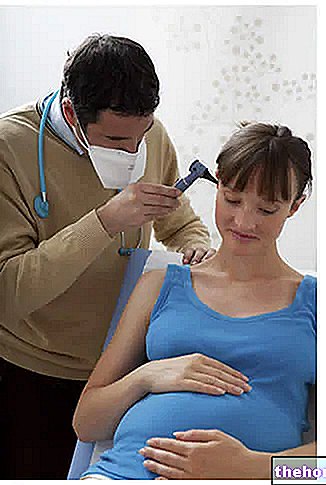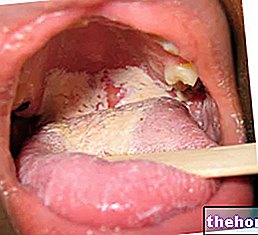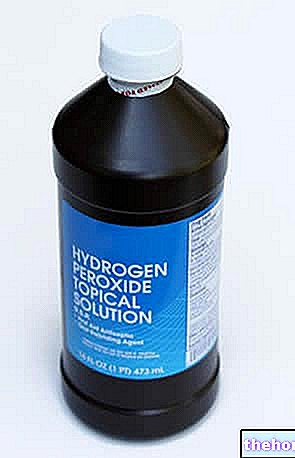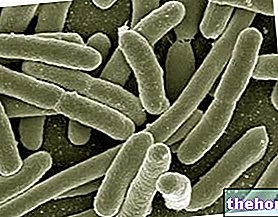Meningococcus
The meningococcus (Neisseria meningitidis) is the etiopathological agent involved in meningitis and meningococcal sepsis; in the previous article we presented the pathogen from a microbiological point of view, also focusing on the etiopathogenesis, therefore on the mode of contagion. In this article, attention will be directed to the description diseases mediated by meningococcus, as well as the analysis of symptoms and possible therapeutic strategies.
Meningococcal meningitis
The arachnoid and the pia mater are the preferential targets of the meningococcus: at the level of the leptomeninges, the bacterium triggers a severe, acute and sudden purulent inflammatory process, which only in some cases resolves itself positively.
Symptoms of meningitis
In infants, meningococcal meningitis manifests itself as an "upper respiratory tract infection which, only in appearance, is of simple resolution: the symptoms can be misleading, confusing meningitis with a mild flu, which can create a diagnostic delay, complicating the prognosis.

The incubation time of the meningococcus is between 24 and 48 hours; after a couple of days from the infection, the symptoms begin suddenly, and the victim is affected by psychomotor agitation, alteration of the menstrual cycle (in women of childbearing age) , drop in blood pressure, neck pain, pain in the neck, high fever, photophobia, loss of appetite, headache (which in children is recognized by the so-called "meningeal cry"), stiffness of the neck muscles and vomiting.
Children with meningococcal infections are observed to often develop marked mental confusion and convulsions, leading to coma.
In cases of severity, the patient can suddenly develop hemorrhagic skin lesions, ranging from simple petechiae to real bruising (typical meningococcal meningitis with degeneration into fulminant sepsis).
Symptoms tend to appear within hours, at most a few days; not all characteristic signs, however, may develop as a result of meningococcal infection. See your doctor immediately if you experience flu-like symptoms that worsen over a few hours or days.
Treatment of meningitis
Antibiotics and corticosteroids are the drug therapy of choice for the treatment of meningitis: antibiotics remove the pathogen, while steroid derivatives exert their therapeutic action through a marked anti-inflammatory mechanism. The most widely used antibiotic drugs are Benzylpenicillin, Cefotaxime , Rifampicin and Chloramphenicol, while the corticosteroid of first choice is Dexamethasone.To alleviate the symptoms, the patient can take, when necessary, anticonvulsant and hypertensive drugs (in case of pressure drop).
The prognosis depends on the moment in which antibiotic therapy is started: obviously, the more the start of treatment is delayed, the more the chances of a poor prognosis increase. When the therapy is started late, but the patient manages to survive, the risk of damage permanent cerebral or deafness increases exaggeratedly. IN THE ABSENCE OF PHARMACOLOGICAL THERAPY, THE MENINGOCOCCUS KILLS THE GUEST.
Sepsis and septic shock
We talk about meningococcal sepsis when the meningococcus spreads in the various anatomical districts through the blood: it is estimated that this complication of meningitis affects the tenth part of patients infected with meningococcus (even if it sometimes occurs without being associated with inflammation of the meninges).
Symptoms
Severe meningococcal sepsis can be fulminant for some patients, but it can progress even with very few and vague signs of meningeal change. The vast majority of patients affected by meningococcal sepsis complain of high fever (over 39 ° C), associated with rash with or without bleeding: as mentioned above, meningococcal sepsis can develop mild papules or petechiae, up to creating severe bruising, shock and disseminated intravascular coagulation. In addition to these characteristic symptoms, a patient suffering from meningococcal sepsis may also complain of lactic acidosis, headache, hypoperfusion (significant reduction in blood supply to one or more organs), hypotension, myalgia, oliguria and vomiting.
The evolution of meningococcal sepsis is also known as Waterhouse-Friderichsen syndrome or, more simply, fulminant purple. Mortality, in such circumstances, is close to 80%, even in the case of early diagnosis.
Treatment of sepsis
Whenever possible, the patient is treated with antibiotics: drug treatment, however, does not always guarantee a good prognosis. Patients in the severe phase of meningococcal sepsis require medical monitoring in the intensive care unit, associated with assisted ventilation and intubation to facilitate breathing movements as much as possible. Steroid drugs can also sometimes relieve inflammation. For further information: read the article on drugs to treat sepsis.
Prevention
The Prevention Services must respond with immediate urgency in the event of a clinical suspicion of meningococcal meningitis being reported: in such circumstances, a plan for prophylaxis must be promptly implemented. All those who are exposed (or have been) to high risk of meningococcal infection (for example, family members of an affected patient) must undergo chemoprophylaxis; remember that the risk of contagion is extremely high in the very first days from the onset of the symptoms of the infection.
Chemoprophylaxis, carried out within 48 hours of contact with the infected person, consists in the administration of Rifampicin, ceftriazone and ciprofloxacin.
As regards vaccination for preventive purposes, the meningococcal childhood vaccine (conjugate vaccine for meningococcus type C) is commercially available, which ensures long-term protection exclusively against meningococcus type C.
What changes from 2017
With the decree law on vaccination prevention for minors from zero to 16 years, approved on 07/28/2017 the vaccine against meningitis (vaccine againstHaemophilus Influenzae type b) has become mandatory for those born after 2001.
As for vaccinations against meningococcus C and meningococcus B, although not mandatory, they are offered by the Regions and Autonomous Provinces, based on the indications of the vaccination calendar relating to the year of birth:
- men born from 2012 to 2016 are offered free anti-meningococcal vaccinations C
- meningococcal B, anti-meningococcal C and pneumococcal vaccinations are offered free of charge to those born in 2017
For more information on mandatory vaccines in children see this article.
Other articles on "Meningitis and Meningococcal Sepsis"
- Meningococcus
- Meningococcal Vaccination - Anti-Meningococcal Vaccine




























